How Much Does Fence Installation Cost? Complete UK Pricing Guide for 2025
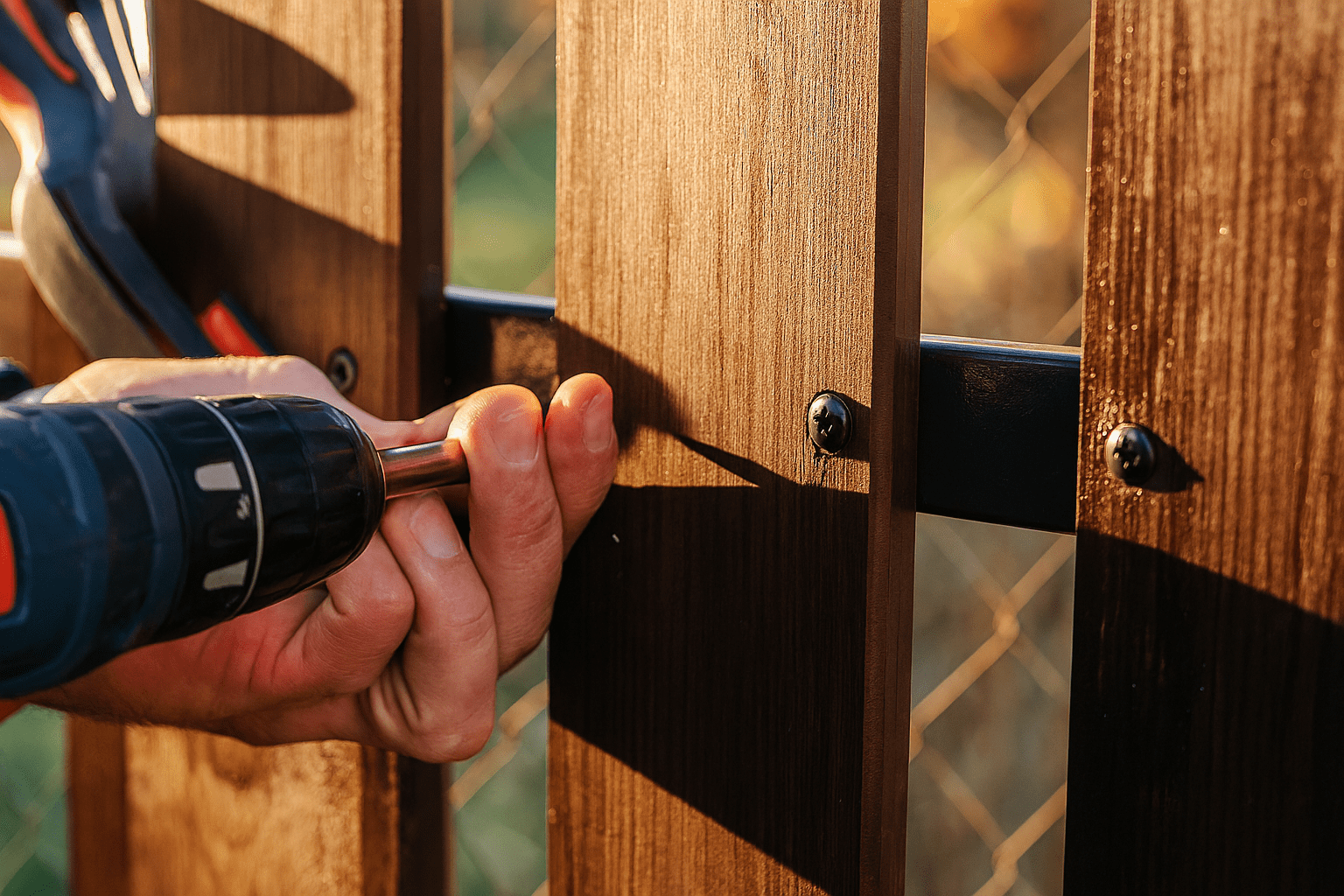
The easiest way to book quality trades
Installing a new garden fence represents a significant investment that enhances your property's privacy, security, and kerb appeal. Understanding fence installation costs helps you budget accurately and make informed decisions about materials, styles, and contractors. With prices varying dramatically based on materials, fence height, garden size, and location, knowing typical costs prevents surprises and ensures you receive fair quotes.
This comprehensive guide breaks down UK fence installation costs in 2025, from budget-friendly panel fencing to premium hardwood and metal options. You'll discover how materials affect pricing, what installation labour costs, which factors increase your final bill, and how to get the best value from your fencing project.
Quick Answer: Fence installation costs in the UK typically range from £45-£100 per metre for complete installation including materials and labour. Budget panel fencing averages £45-£65 per metre, mid-range options cost £65-£85 per metre, while premium materials like hardwood or metal reach £85-£150+ per metre. For an average 20-metre garden boundary, expect total costs of £900-£3,000 depending on materials and complexity.
Understanding UK Fence Installation Costs in 2025
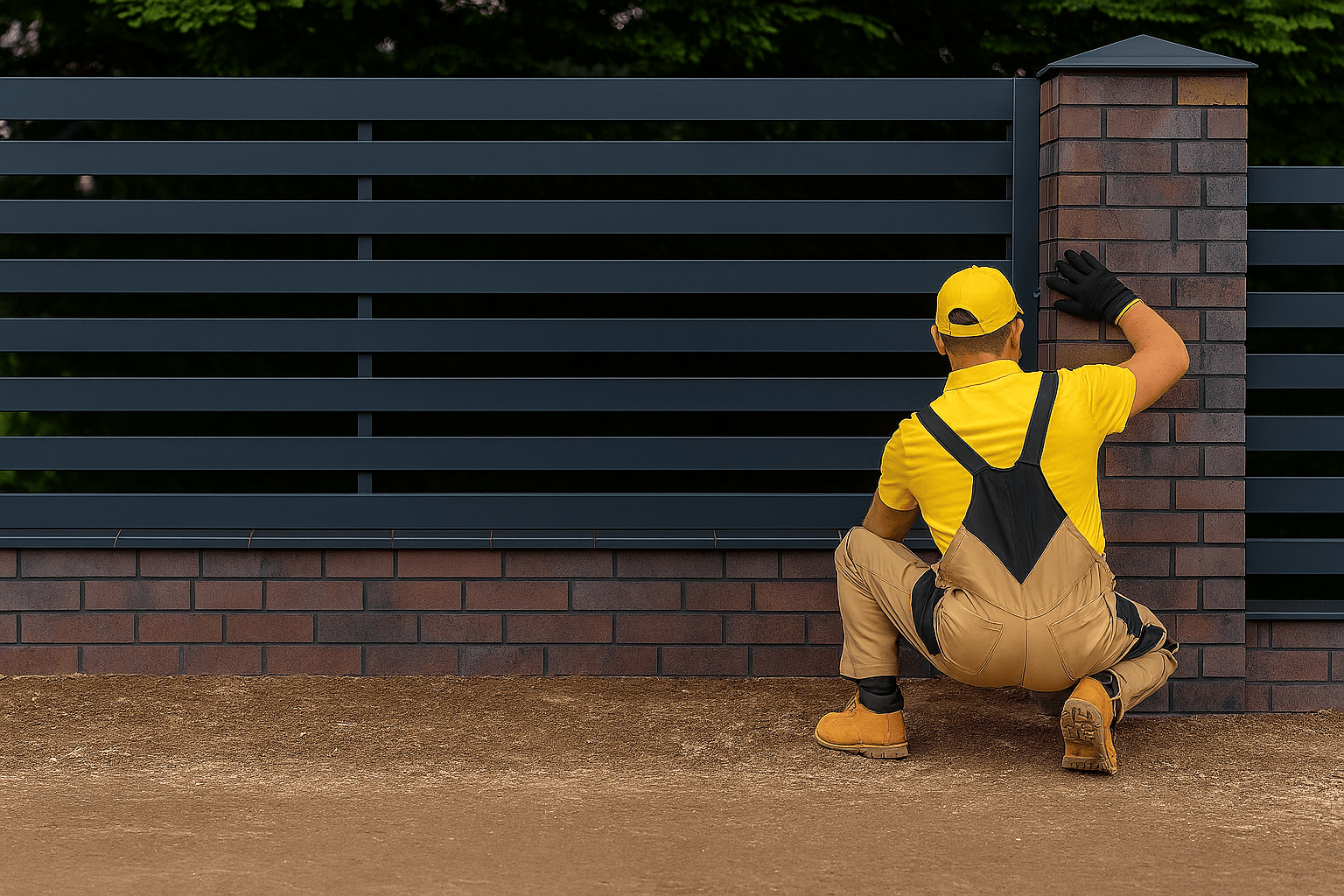
Fence installation pricing combines material costs with labour charges, plus potential additional expenses for site preparation, old fence removal, and special requirements. Breaking down these components helps you understand quotes and identify where you can adjust specifications to suit your budget.
Average Costs Per Metre by Fence Type
Budget Panel Fencing: £45-£65 per metre installed
Standard pressure-treated softwood panel fencing represents the most economical option for UK gardens. This pricing includes basic fence panels (£25-£45 per 1.83m panel), pressure-treated posts, concrete for post installation, and labour. Budget panel fencing typically uses 6ft x 6ft overlap or lap panels that provide adequate privacy and last 10-15 years with basic maintenance.
At this price point, expect straightforward installation on level ground with good access. The panels use thin boards (10-12mm) and basic framing, making them lighter and less durable than premium options but perfectly adequate for standard residential boundaries.
Mid-Range Fencing: £65-£85 per metre installed
Mid-range fencing includes better quality pressure-treated panels, feather-edge close board fencing, or decorative panel styles. These options use thicker boards (15-20mm), more substantial framing, and better quality timber treatment. The improved construction provides enhanced durability, typically lasting 15-20 years.
Close board feather-edge fencing at this price point offers superior wind resistance and privacy compared to panel fencing. The overlapping vertical boards create solid barriers without the panel framework that can weaken over time, making close board fencing ideal for exposed sites or areas requiring maximum privacy.
Premium Fencing: £85-£150+ per metre installed
Premium fencing encompasses cedar, hardwood, composite materials, and metal fencing. Western Red Cedar costs £85-£120 per metre installed, offering beautiful natural appearance and 20-30 year lifespan with minimal maintenance. The natural oils in cedar resist rot and insects without chemical treatment.
Oak and sweet chestnut hardwood fencing costs £100-£150 per metre installed, providing exceptional durability (25-40 years) and developing attractive weathered patina. Metal fencing including steel and aluminium ranges from £90-£200+ per metre depending on design complexity. Powder-coated steel offers 30-50 year lifespan with minimal maintenance, while aluminium provides rust-free performance ideal for coastal locations.
Material and Labour Cost Breakdown
Understanding the split between materials and labour helps you evaluate DIY options versus professional installation. Material costs typically represent 40-60% of total fence installation expenses, with labour making up the remainder.
Material Costs
Fence panels from retailers like B&Q, Wickes, or Screwfix cost £25-£75 per 6ft panel depending on quality. Budget overlap panels start around £25-£35, mid-range lap panels cost £35-£50, while premium decorative panels reach £50-£75. Fence posts cost £8-£20 each for pressure-treated softwood, £20-£40 for hardwood, or £30-£80 for concrete posts offering maximum durability.
Additional materials include postcrete or concrete for post installation (£5-£8 per post), gravel boards to protect panel bases (£10-£18 per board), and post caps for weather protection (£2-£5 each). For a 20-metre fence requiring 11 panels and 12 posts, material costs range from £400-£1,200 depending on quality choices.
Labour Costs
Professional fence installation labour typically costs £150-£300 per day, with most fencers working in pairs to speed installation and handle heavy materials safely. Average installation rates translate to approximately £25-£40 per metre for labour alone, though this varies by region and project complexity.
Fence installers in London and Southeast England command premium labour rates of £30-£50 per metre, while Northern England, Scotland, and Wales typically see £20-£35 per metre. Urban areas generally cost more than rural locations due to higher business overheads.
Most fencers can install 15-25 metres of panel fencing per day depending on site conditions. Close board fencing takes longer—typically 10-15 metres per day—due to individual board installation. These rates help you estimate labour costs by calculating how many days your project requires.
Key Factors That Affect Fence Installation Costs
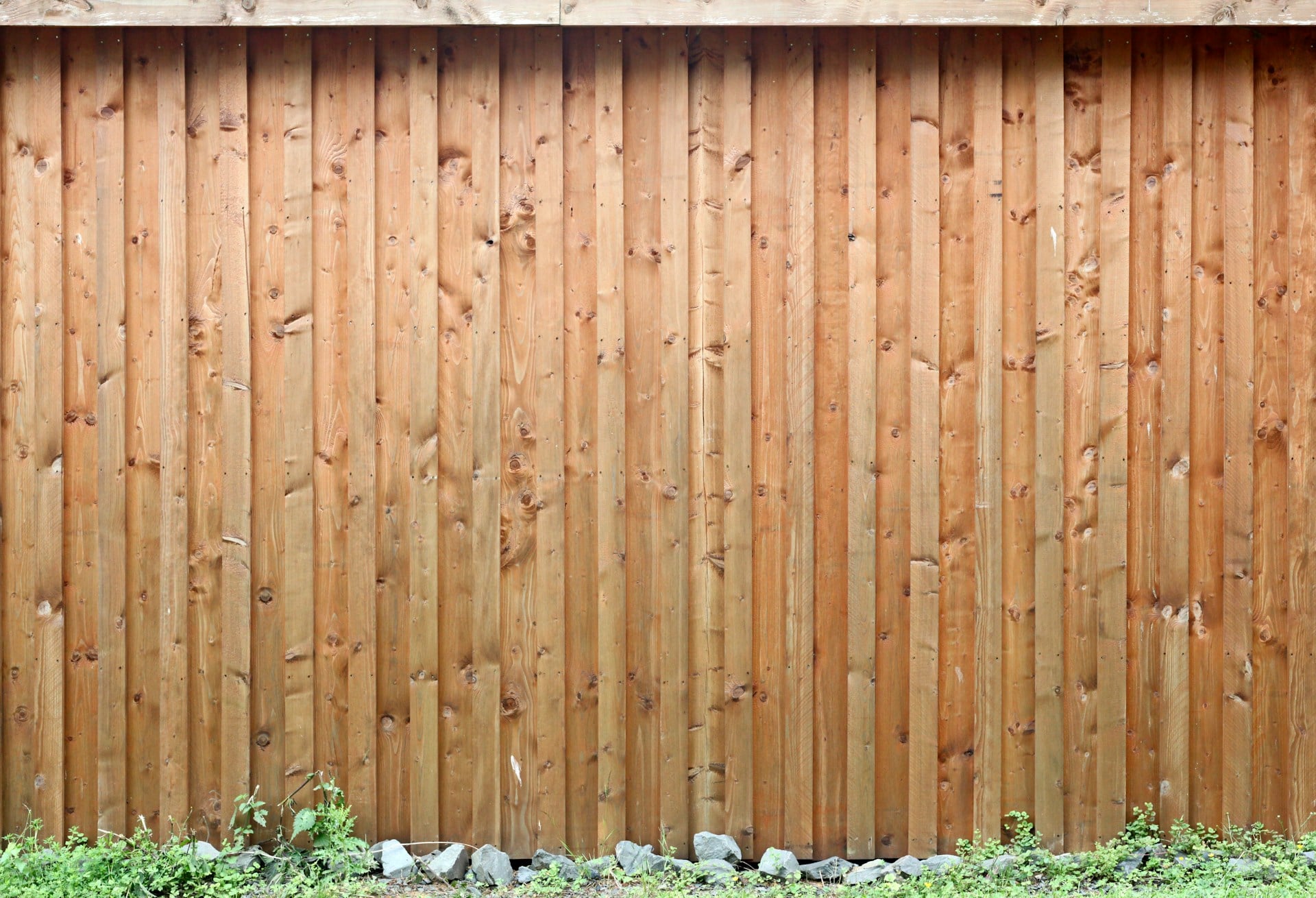
Need a fencing professional?
Get instant quotes from 3-5 vetted local tradespeople. Compare prices, reviews, and availability—all in one place.
Multiple variables beyond basic material choice significantly impact your final fence installation bill. Understanding these factors helps you budget accurately and identify potential cost-saving opportunities.
Fence Height and Length
Standard 6ft (1.83m) high fencing represents the baseline pricing discussed above. Lower fencing (3-4ft) for front gardens costs 20-30% less, typically £35-£50 per metre installed. Higher fencing exceeding standard height commands premium pricing. Adding trellis toppers to achieve 7-8ft total height costs an additional £15-£25 per metre including materials and installation.
Total fence length affects pricing through quantity discounts and installation efficiency. Small projects under 10 metres often cost 10-20% more per metre due to minimum call-out charges. Larger projects over 30 metres may offer 5-15% per-metre discounts as contractors achieve better material pricing and installation efficiency.
Ground Conditions and Site Access
Ground conditions significantly impact fencing installation costs through varying post installation requirements. Firm, well-drained soil represents ideal conditions allowing straightforward post installation at standard pricing. Rocky or stony ground increases installation costs by 20-40% due to difficult digging requiring specialist equipment.
Waterlogged or very soft ground requires deeper post installation or concrete spurs to provide adequate support. These conditions may add £15-£30 per post to installation costs. Ground with tree roots or underground services requires careful hand digging, slowing installation considerably.
Access affects installation costs through material delivery and logistics. Good vehicle access allows efficient installation at standard rates. Restricted access requiring materials to be carried through houses adds 10-30% to labour costs. Terraced properties with rear garden access only through the house may increase costs by 30-50%.
Old Fence Removal and Disposal
Removing and disposing of existing fencing adds £150-£400 to total project costs depending on fence length and material type. Standard panel fence removal costs approximately £8-£15 per metre, while concrete posts require more effort at £15-£25 per post.
Most professional installers include old fence removal in their quotations. However, some quote installation-only prices, with removal charged separately. Always clarify whether quotes include removal and disposal to avoid unexpected charges.
Waste disposal regulations require proper handling of treated timber. The Environment Agency provides guidance on waste wood disposal, noting that treated timber requires specific disposal routes. Most professional installers handle disposal through licensed waste carriers.
Gates and Special Features
Adding gates to your fence line increases costs based on gate size, material, and hardware quality. Understanding detailed garden gate costs helps you budget appropriately for entrance features that complement your fence design. Standard 3ft (900mm) wide pedestrian gates cost £80-£200 including basic hinges and latches, while wider 6ft (1.83m) double gates for vehicle access cost £200-£500 depending on materials and specification.
Gate posts require additional strengthening and deeper installation than standard fence posts. Most installers use larger section posts (4x4 inch minimum) or concrete gate posts, set deeper (90-120cm) to handle gate weight and leverage forces. This adds £30-£60 per gate post beyond standard fence post costs.
Premium gate hardware including self-closing hinges, automatic latches, or security locks adds £30-£100 per gate depending on specification. Automated electric gates represent substantial additional investment, typically costing £1,500-£4,000 including controls and installation.
Post caps and decorative finials add £3-£15 per post depending on style and material. While not essential, these features improve weather protection and aesthetic appeal. Ball finials suit traditional fencing, while flat or pyramid caps complement contemporary designs.
Integrated planters built into fence lines cost approximately £50-£120 per planter including materials and installation. These features maximize planting space in small gardens while softening hard fence lines. Ensure planters include drainage and fence fixings capable of supporting loaded planter weight.
Regional Price Variations Across the UK
Geographic location significantly impacts fence installation costs through varying labour rates and regional market conditions.
London and Southeast England
London represents the UK's most expensive region for fence installation, with complete installation typically costing £65-£120 per metre for standard panel fencing—20-30% above national averages. Fence fitters in London face higher operating costs due to congestion charges, parking challenges, and elevated living expenses.
The Home Counties including Surrey, Kent, Essex, and Berkshire typically see costs 10-20% above national averages, ranging from £55-£95 per metre for standard installations. These areas balance proximity to London with slightly lower operating costs.
Northern England, Scotland, and Wales
Northern regions typically offer the UK's most competitive fence installation pricing, with complete installation averaging £40-£70 per metre for standard panel fencing—15-25% below national averages. Cities including Manchester, Liverpool, Leeds, and Newcastle provide competitive markets with experienced contractors.
Scotland's major cities Edinburgh and Glasgow see similar pricing to Northern England, ranging from £40-£75 per metre. Wales offers competitive pricing particularly outside Cardiff, with installation typically costing £40-£70 per metre.
Ready to hire a trusted fencing?
Compare quotes, read verified reviews, and hire with confidence. Our platform connects you with local professionals who are ready to help.
Instant Quotes
Responses within 24 hours
Verified Reviews
Real customer feedback
No Commitment
Choose when you're ready
DIY Installation vs Professional Contractors
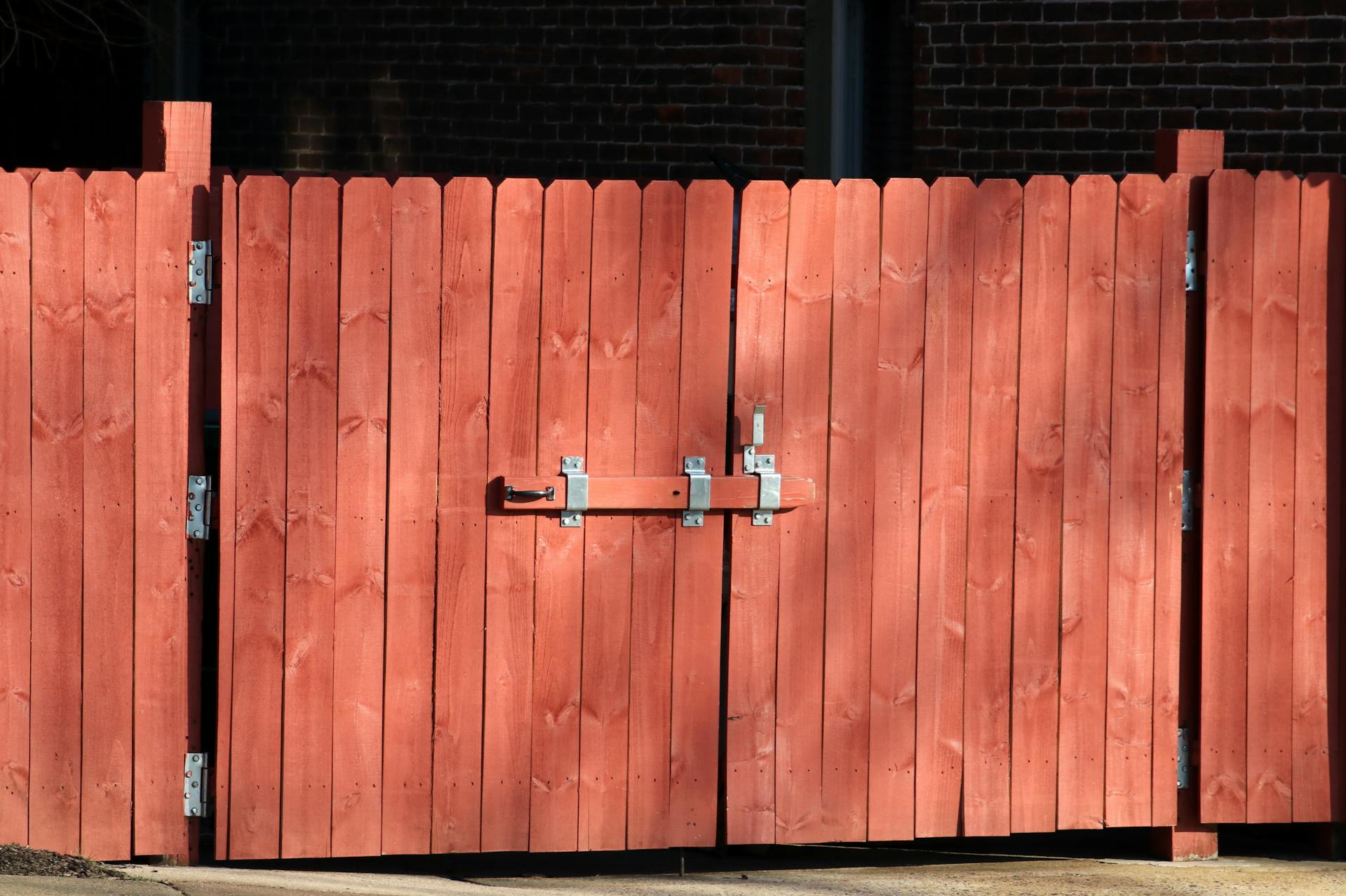
Deciding between DIY installation and hiring professionals depends on your skills, available time, and project complexity.
DIY Fence Installation Costs and Considerations
DIY installation saves £25-£40 per metre in labour costs, potentially reducing a 20-metre fence installation from £1,200-£1,600 to £600-£900 in material costs alone. These savings prove substantial, particularly for budget-conscious homeowners with appropriate skills and tools.
However, DIY installation requires significant time investment—typically 1-2 full days for 20 metres of panel fencing. The work involves heavy lifting, precise post positioning, and working with concrete, presenting physical challenges particularly for solo workers. Most fencing projects work better with two people for safe material handling and accurate installation.
Tool requirements for DIY installation include a post hole digger or auger (£30-£80 to purchase, £20-£40 daily hire), spirit level for accurate post positioning, tape measure and string line for layout, electric drill for bracket installation, and possibly a concrete mixer (£25-£50 daily hire) for large projects. While these costs are modest, factor them into your DIY budget.
Quality concerns represent the biggest DIY risk. Improperly installed posts may lean or fail within months, particularly if post holes are insufficient depth or posts aren't perfectly vertical. Poor panel alignment creates unsightly installation and potential structural weakness. Most DIY fence failures stem from rushed post installation or inadequate concrete curing time.
For those considering DIY installation, our comprehensive guide to garden fence ideas provides valuable information about different fence styles, materials, and design options to inform your project planning.
Professional Installation Benefits
Professional installation ensures quality results through experienced contractors who understand proper post depth requirements, correct concrete mixing ratios, and accurate alignment techniques. Most professionals guarantee their work for 12 months minimum, providing recourse if problems develop.
Time savings prove significant—professionals typically complete in one day what might take DIY installers an entire weekend. Professional installers handle all aspects including old fence removal, accurate measurement, proper post setting, and cleanup after installation.
Professional installers handle all aspects including old fence removal and disposal, accurate measurement and material ordering, proper post setting and alignment, and cleanup after installation. This comprehensive service eliminates the hassle and potential mistakes common in DIY projects.
According to the Planning Portal, fences over 2 metres high, or over 1 metre where adjacent to highways, may require planning permission. Professional installers understand these requirements and ensure compliant installations.
When DIY Makes Sense
DIY installation proves most suitable for straightforward projects including small fence repairs replacing individual panels, low front garden fencing under 1.2 metres high, level ground with good access and no complications, and when you have appropriate tools and assistance. These scenarios minimize complexity while maximizing potential savings.
When to Hire Professionals
Professional installation makes sense for extensive boundary fencing requiring multiple days' work, concrete post installation requiring specialized equipment, sloping ground requiring stepped panels or custom installation, restricted access presenting material handling challenges, and projects requiring removal of mature hedges or substantial old fencing. These situations benefit from professional expertise and equipment.
Additional Costs to Consider
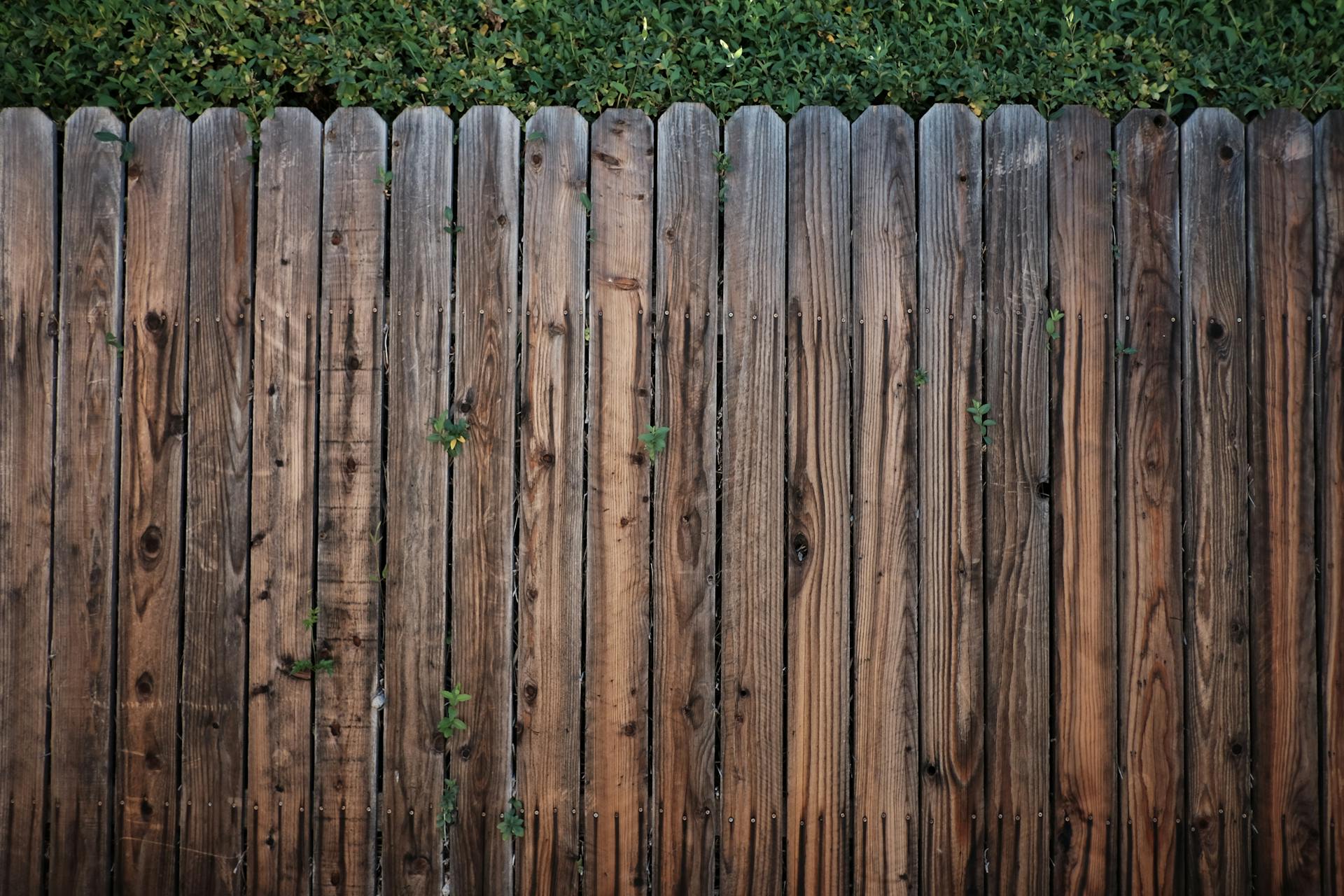
Beyond basic installation, several additional expenses may affect your total project cost.
Planning Permission
Most garden fencing doesn't require planning permission under permitted development rights. However, you may need planning permission if your fence exceeds 2 metres height, exceeds 1 metre adjacent to highways, or if your property is in a conservation area or is a listed building.
Planning permission applications cost approximately £206 for householder applications in England. Always check with your local planning authority before installing fencing exceeding permitted development limits.
Concrete Posts and Foundations
Concrete posts cost £20-£40 each compared to £8-£20 for wooden posts, but offer exceptional durability. Concrete posts should last 40-50+ years compared to 15-25 years for treated timber posts. While initial costs are higher (approximately £10-£20 extra per metre installed), the extended lifespan often justifies the investment.
Treatment and Maintenance
New pressure-treated fencing doesn't require immediate treatment, with factory treatment protecting timber for the first 12-18 months. However, staining or painting after initial weathering significantly extends fence lifespan.
Quality fence stain costs £20-£40 per 5-litre tin, covering approximately 25-30 metres of fence per coat. Budget for two coats during initial treatment (£40-£80 total). Subsequent treatments every 3-5 years require single coats for maintenance.
Getting Accurate Quotes from Fencers
Obtaining detailed, comparable quotes ensures you receive fair pricing and understand exactly what's included in your fence installation project.
Information to Provide
Provide total fence length in metres, desired height, material preferences, and whether you need old fence removal. Mention any site complications including difficult access, sloping ground, or hard ground conditions. These factors significantly affect pricing, and disclosing them upfront prevents quote revisions.
Specify whether you need gates, including number, width, and preferred style. The more detail you provide, the more accurate your quotes will be.
What Quality Quotes Should Include
Comprehensive quotes specify exact materials including fence type, post type, and concrete requirements. Labour should be detailed including old fence removal if applicable, installation labour with timeframe, and cleanup. Timeline information should clarify expected start date and anticipated completion time.
Payment terms should specify deposit requirements (typically 10-30% of total) and payment schedule. Warranty information should cover labour guarantees (typically 12 months minimum) and material warranties.
Red Flags to Watch For
Be wary of quotes significantly below market rates—usually 30%+ below comparable quotes—which may indicate substandard materials or inadequate installation. Cash-only requests without proper invoicing limit consumer protection. Pressure for immediate decisions or large upfront payments exceeding 30% suggests potential problems.
Maximizing Value from Your Fence Installation
Strategic planning and informed decision-making help you achieve the best results within your budget.
Choosing Materials for Best Value
Consider total ownership costs rather than just installation costs. Pressure-treated softwood costs least initially but requires maintenance every 3-5 years and replacement after 15-20 years. Cedar costs 50-100% more initially but requires minimal maintenance and lasts 25-30 years.
Concrete posts cost £10-£20 extra per metre initially but eliminate the most failure-prone fence element. Timber posts rot at ground level even when panels remain sound. Concrete posts with timber panels provide excellent value through extended total fence lifespan.
Choose appropriate quality for your needs. Front garden fencing visible from the street benefits from higher quality materials enhancing kerb appeal. Back garden fencing prioritizing privacy may suit more economical options.
Proper Maintenance for Longevity
Extending fence lifespan through proper maintenance maximizes your installation investment. Clear vegetation from fence bases preventing moisture contact that promotes rot. Trim back climbing plants annually preventing weight stress.
Apply wood treatment every 3-5 years maintaining water resistance and preventing UV damage. Treatment costs £40-£80 per 30 metres but extends fence lifespan by 5-10 years, easily justifying the modest investment. Repair minor damage promptly preventing small problems from escalating—replace damaged panels immediately, tighten loose fixings, and address leaning posts before they fail completely.
Finding Reliable Fencing Contractors
FixaTrader simplifies finding quality fencing contractors by connecting you with vetted professionals in your area. Our platform allows you to describe your fencing project in detail, receive multiple quotes from local contractors, compare pricing and customer reviews, and book with confidence knowing contractors are verified.
Every contractor on FixaTrader undergoes verification ensuring appropriate insurance, business registration, and customer satisfaction track records. Reading reviews from previous customers helps you identify reliable contractors with proven quality workmanship.